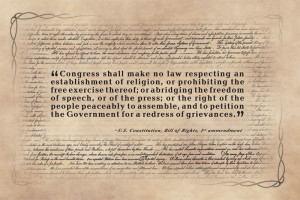As I write this, at home in Houston, Texas in the middle of Hurricane Harvey, I am trapped at home surrounded by feet of water encircling my house.
But I am safe, the house is prepared, no water is getting in and I have power. So I will write and tell you the interesting phrases and terminology I hear throughout this five day event. You may be interpreting it for other media, or you may be hunting for expressive terms for your own creative writing, forensic writs and communications or you may be a terminologist. Full disclosure: some tongue in cheek humor has found its way into my writing.
Rain event– I heard this a lot the first day. And yes, Harvey started out as that but then the rain became a flood and then spawned many foods. A “Rain Event” is used in a comparative sense to describe a weather storm event in which rain is predominant. The comparison is to the other damaging elements such as high wind, tornados, storm surge, and flooding.
Lengthy wait. Waiting for drinking water, gas for your car, waiting on a freeway for the water to go down at your exit or in line at grocery stores finally open after three days in a hurricane is subjective. This term was used to describe waiting in line to check out at a grocery store as 2 hours by one person and 5 hours by another. People called it a lengthy wait when they waited -overnight- on a high point of a freeway before they could get off the freeway.
Mandatory evacuation. You have to leave. City officials and law enforcement get involved.
Tornado Watch A watch is issued when conditions are favorable, for example, either for a severe thunderstorm or tornadoes.
Tornado Warning Warnings mean that severe weather is imminent. It is on you now.
Cabin Fever This is restlessness because you can’t leave a location your home or a shelter. It can lead to dysfunctional or really useful productive behavior. It also leads to being Slap Happy and writing great comedy and inventive games. Another relative term is Stir Crazy.
Shelter In Place This means stay where you are. I think this term is problematic because you could be under an overpass or in your car on a highway in a dangerous storm. So I highlight the emphasis on Shelter- you need to be sheltered by your location and don’t be wandering around.
Stay Safe. This is the universal pleasantry uttered by people who are not themselves facing any form of risk, danger or inconvenience.
Impassable Roads. Your car will not and should not get through. They really need to replace this word with more of an impacting visual term: Totally Blocked or Walled Off. The reason I say this is we had several people drive into areas declared Impassable and they drowned in their cars.
Trapped. I have learned that you can be trapped in a bad place or in a good place. So the word is grounded on the location being safe and not the lack of freedom or confinement. I feel lucky to be “trapped” in a flood water free home with power compared to being trapped in rising water in a car or in your house.
To Underestimate. This is constantly being used to describe the supposed thinking of people who drove into high water and didn’t survive. It is also being stated by people who got stuck on the flooded roads when a reporter catches up with them. My point is this, the root of the word is estimate, which should involve appreciable thinking. In so many ways this seems doubtful.





